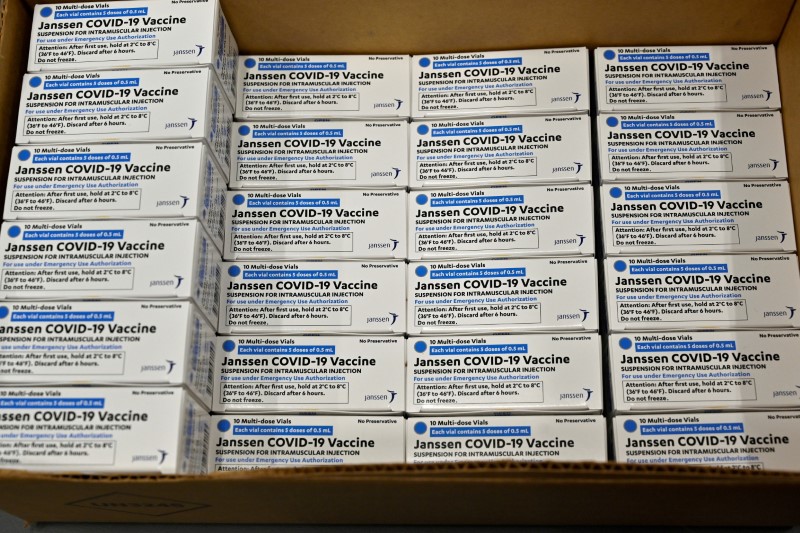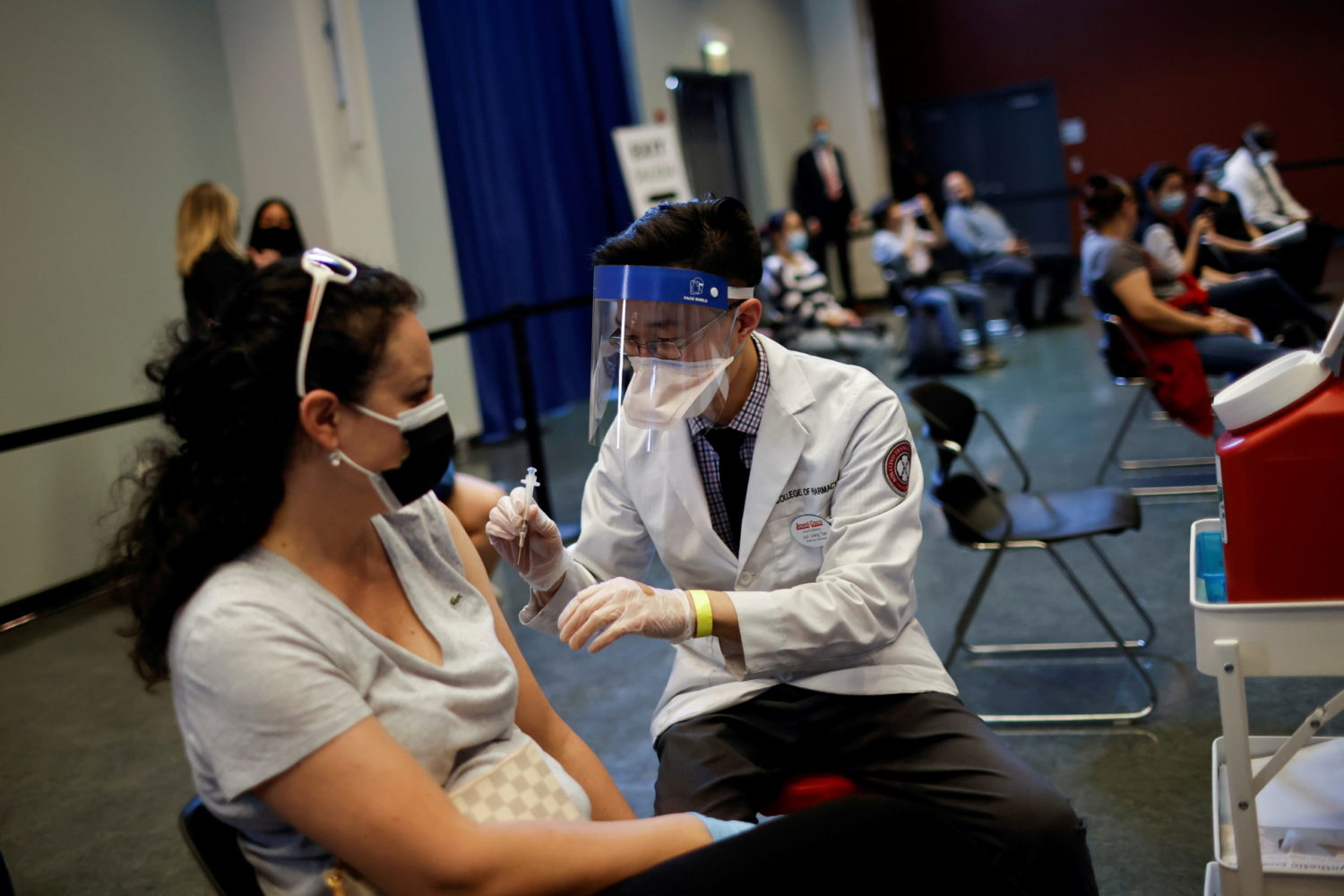
By Alasdair Pal and Krishna N. Das
NEW DELHI (Reuters) -India on Tuesday said it will fast-track emergency approvals for COVID-19 vaccines authorized by Western countries and Japan, paving the way for possible imports of Pfizer, Johnson & Johnson, and Moderna shots.
The move, which will exempt companies from carrying out local safety trials for their vaccines, follows the world’s biggest surge in cases in the country this month.
Since April 2, India has reported the highest daily tallies of infections. It reported 161,736 cases on Tuesday, taking the total to 13.7 million, while deaths rose by 879 to 171,058.
On Tuesday, India’s richest state Maharashtra, which accounts for about a quarter of the country’s cases, said it would impose stringent restrictions from Wednesday to try to contain the spread.
India has the biggest global vaccine manufacturing capacity and had exported tens of millions of doses before its own demand skyrocketed and led to a shortage in some states.
Dozens of poor countries have relied on Indian exports to run their inoculation drives.
The health ministry said vaccines authorized by the World Health Organization or authorities in the United States, Europe, Britain and Japan could be granted emergency use approval in India.
“If any of these regulators have approved a vaccine, the vaccine is now ready to be brought into the country for use, manufacture and fill-and-finish,” Vinod Kumar Paul, a senior government health official, told a news conference.
“We hope and we invite the vaccine makers such as Pfizer, Moderna, Johnson & Johnson and others … to be ready to come to India as early as possible.”
Pfizer said it would work towards bringing its vaccine to India after withdrawing its application in February.
U.S. federal health agencies on Tuesday recommended pausing use of the J&J shot after six women under age 50 developed rare blood clots after receiving it.
India has administered more than 108 million vaccine doses, sold more than 54.6 million vaccine doses abroad and gifted more than 10 million to partner countries.
It is currently using the AstraZeneca shot and a homegrown vaccine for its own immunization drive, and this week approved Russia’s Sputnik V shot for emergency use.
RALLIES, RELIGIOUS GATHERINGS
The jump in India’s infections, for which Health Minister Harsh Vardhan acknowledged widespread failure to heed curbs on movement and social interaction, has prompted calls for the government to cancel huge public events.
Still, hundreds of thousands of devout Hindus are set to bathe in the Ganges river on Wednesday, the third key day of the weeks-long Kumbh Mela – or pitcher festival.
Nearly a million bathed in the Ganges on Monday in the belief that its waters would wash away their sins. More than 100 tested positive for COVID-19 in random testing of around 18,000 attendees, media said.
Similar concerns of a spike in cases were sparked by mass election rallies by Prime Minister Narendra Modi’s party and opposition groups during polls in four states and one federally run region.
At one rally in the eastern state of West Bengal, a key political prize, Home Minister Amit Shah posted Twitter pictures of meetings with crowds of supporters while unmasked.
DEADLY SPREAD
The second wave of infections, which began in India’s major cities, is increasingly spreading into the hinterland, where healthcare facilities are often rudimentary.
In Raipur, the capital of Chhattisgarh state known for its large tribal population, the main government hospital’s morgue was struggling to keep up, said joint director Dr Vineet Jain.
“All oxygenated and ICU beds are full in our set-up,” he told Reuters.
“Around 50 dead bodies are laying, we have a shortage of space. Some private hospitals do not have space to keep the dead bodies so they also send the bodies to us.”
India is currently reporting around double the daily cases of the United States and Brazil, the two other worst affected countries, though its daily death toll is lower.
India’s total infections rank after only the United States, having overtaken Brazil on Monday.
(Reporting by Krishna N. Das and Alasdair Pal in New Delhi and Jatindra Dash in Bhubaneswar; Editing by Nick Macfie, Ana Nicolaci da Costa and John Stonestreet)












